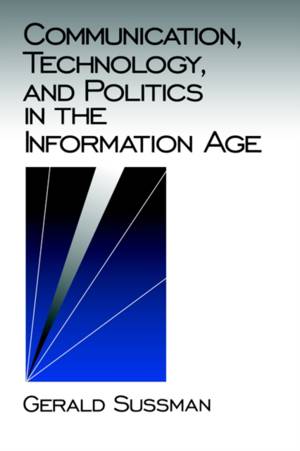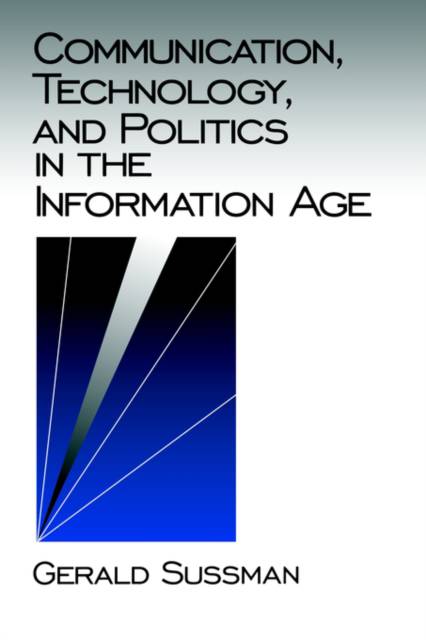
- Retrait gratuit dans votre magasin Club
- 7.000.000 titres dans notre catalogue
- Payer en toute sécurité
- Toujours un magasin près de chez vous
- Retrait gratuit dans votre magasin Club
- 7.000.0000 titres dans notre catalogue
- Payer en toute sécurité
- Toujours un magasin près de chez vous
Communication, Technology, and Politics in the Information Age
Gerald Sussman
216,95 €
+ 433 points
Format
Description
How do politics influence communication technology? What forces shape technological enterprise? How do politics, society, and technology intersect? To answer these questions, author Gerald Sussman looks beyond the techno-functional aspects of product and process and focuses instead on the human agents and institutions involved in the making of information technologies. Sussman begins with a look at theory and then reviews the social history of communication technology. He next examines contemporary issues in the U.S. context, from the diminishing of citizenship and work experiences to the growing use of commercial and political surveillance. In so doing, he reveals to readers "just who the heavy truckers are on the information highway and what that means for the rest of us." The author concludes by examining the global dimension of the information society, pointing out effects on developing countries and alternatives to the hegemonic tendencies of the U.S. and world economies. Through his carefully detailed and critical analysis, Sussman demystifies the political and social inner workings of communication technologies and guides readers to an understanding of the real meaning of the information revolution. Ideal as a main text or as supplement for courses in American politics, contemporary political issues, the political economy of communication, and public policy, Communication, Technology, and Politics in the Information Age will be an invaluable resource to students and academics in the fields of communication, political science, sociology, and mass communication.
Spécifications
Parties prenantes
- Auteur(s) :
- Editeur:
Contenu
- Nombre de pages :
- 336
- Langue:
- Anglais
- Collection :
- Tome:
- n° 27
Caractéristiques
- EAN:
- 9780803951402
- Date de parution :
- 01-09-97
- Format:
- Livre broché
- Format numérique:
- Trade paperback (VS)
- Dimensions :
- 153 mm x 229 mm
- Poids :
- 498 g

Les avis
Nous publions uniquement les avis qui respectent les conditions requises. Consultez nos conditions pour les avis.






